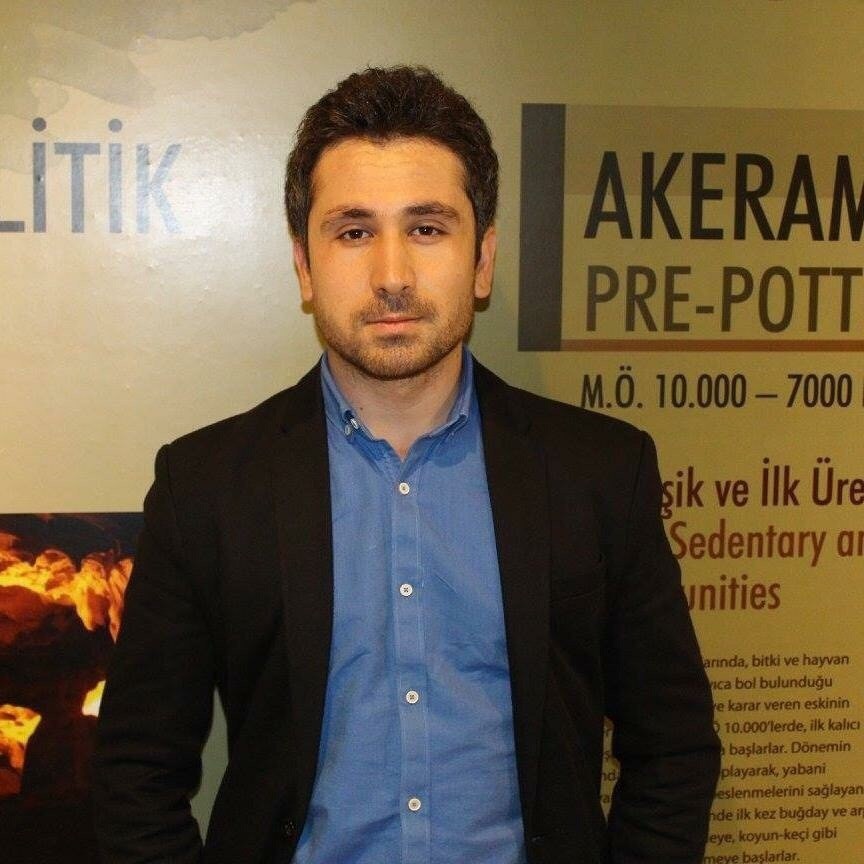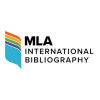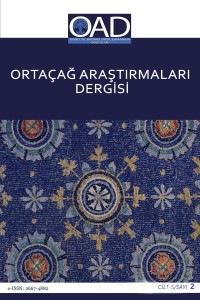Research Article
Translation
Issue Editorial Board


Lisans: Hacettepe Üniversitesi Fen Edebiyat Fakültesi Sanat Tarihi (1999-2003)
Yüksek Lisans: Hacettepe Üniversitesi Sosyal Bilimler Enstitüsü Sanat Tarihi ABD (2004-2007)
Doktora: Ankara Üniversitesi Sosyal Bilimler Enstitüsü Sanat Tarihi ABD (2011-2017)
Unvan-Kurum: Doç. Dr., Bozok Üniversitesi Fen-Edebiyat Fakültesi Sanat Tarihi Bölümü, Bizans Sanatı Anabilim Dalı Başkanı

English, Latin

Çalışmalarımda İngilizce, Latince ve Rusça kullanmaktayım




1981 yılında Giresun’da dünyaya geldi. 2005 yılında Marmara Üniversitesi İlahiyat Fakültesi’nden mezun oldu. 2011 yılında “Ebûbekir Zekeriyâ Râzî’nin Metafiziği” adlı teziyle Marmara Üniversitesi Sosyal Bilimler Enstitüsü Felsefe ve Din Bilimleri Anabilim Dalı İslam Felsefesi Bilim Dalı’nda yüksek lisansını; 2017 yılında ise aynı Enstitünün Felsefe ve Din Bilimleri Anabilim Dalı’nda “Fahreddîn er-Râzî’nin el-Mantıku’l-Kebîr’inin Tahkik ve İncelemesi” adlı tezle Mantık alanında doktora eğitimini tamamlamıştır. 2004 yılından itibaren çeşitli kamu kuruluşlarında çalıştıktan sonra 2011 yılında Erzincan Üniversitesi İlahiyat Fakültesi Mantık Anabilim Dalı’na Araştırma görevlisi olarak atanmış olup 2018'de Dr. Öğretim Üyesi, 2022 yılında da Doçent olarak atanmıştır. Halen Gümüşhane Üniversitesi İlahiyat Fakültesi Mantık Anabilim Dalında Doçent olarak görev yapmaktadır. Çalışma alanları; mantık, metafizik ve metodoloji ayrıca felsefi meseleler üzerine popüler yayınları vardır.
Gazete yazıları, Tv programları, şiirleri ve youtube yayınları bulunmaktadır.
Evli ve dört çocuk babasıdır.





 Web
Web


Aim & Scope
The aim of the Journal of Medieval Studies is to be among the priority journals that are published in regular intervals and preferred in the field of Medieval History, in accordance with scientific norms and scientific ethics, by rigorously evaluating qualified and original studies in the field of Medieval History.
Our journal covers all events that shape history by affecting the Eastern World and the Western World politically, socially, economically and culturally within a long period of time such as the Middle Ages.
The Journal of Medieval Studies aims to contribute to the publication of academic studies that can reveal the political, social, economic and cultural development in the Eastern and Western world in the Middle Ages, which is a very important transition period of history.
Within this framework, the journal can adopt the publication of some issues as publication topics.
Articles published in this framework are based entirely on scientific research.
There are at least one resource analysis in each issue, book promotions and translations (with the approval of the authors).
The journal carries an electronic feature and every copy is made accessible to the internet.
The journal, which does not have an organic connection with any institution and organization, publishes articles of all researchers interested in the history of the Middle Ages, with the scientific and legal responsibility of the opinions in the published studies.
Author Guidelines
1. 1. The Journal of Medieval Studies publishes Turkish and English abstracts of articles. Therefore, abstracts should be included in the articles, not exceeding 200 words.
2. 2. In order to be able to index articles, 4 - 5 word Keywords should be added in Turkish and English under the abstracts.
3. 3. The article should not contain any name or institution information about the author. This issue should be considered as our journal will use the Blind Referee System.
4. 4. The Journal of Medieval Studies uses Open Journal Systems Software. For detailed information about Open Journal Systems; see. http://pkp.sfu.ca/ojs/. To upload an article to the journal, you must first register. After making your registration, you can upload your article to the system under the "New Post" title on the system. You can follow the referee and publication stages of the article from your User Panel.
5. 5. The articles submitted to the journal should not be published before or they should not be in the evaluation process of another journal at the same time. Symposium papers can be published in our journal on condition that this issue is notified.
6. 6. The Journal of Medieval Studies uses iThenticate plagiarism detection software to prevent scientific unethical uses. In accordance with scientific ethical rules, in case of a similarity with another publication over 20 %, the articles will be returned to the author without being sent to the referee.
77 7. The extended English abstract of at least 600 and at most 900 words should be attached to the end of the article.
7. Authors should prepare their articles in accordance with the following page layout:
- Paper Size: A4 Portrait
- Margins: Top (2.5 cm), Bottom (2.5 cm), Left (2.5), Right (2.5)
- Paragraph Head: 0.5 cm
- Block Quote: 0.5 cm on both sides
- Typefont: Times News Roman
- Line Spacing: Single
- Font Size: 11 Point (Bibliography and Block Citation: 10 Point)
- Paragraph Spacing: Lower and Upper 6 pt
Bibliography
The resources used in the article will be included under the title of “Bibliography”. The works in the bibliography will be shown as 10 points as in the examples below.
Books:
Ülgen, Pınar; Orta Çağ Avrupasında Kölelik – Toplum ve Hukuk, Arkeoloji ve Sanat Yayınları, İstanbul, 2013.
Articles:
Serdar, Murat; “Bilginin Peşinde Bir Din Adamı: Bathlı Adelard”, Münir Atalar Armağanı: Orta Çağ Tarihi Yazıları, (Ed. Pınar Ülgen – Alpaslan Demir – Murat Serdar), Arkeoloji ve Sanat Yayınları, İstanbul, 2016, pp. 277 - 286.
Dissertations:
Özer, Gülnur; Orta Çağ Avrupa’sının Çehresini Değiştiren Batıl İnançlar, Unpublished Postgraduate Thesis, Tokat Gaziosmanpaşa Üniversitesi Sosyal Bilimler Enstitüsü, Tokat, 2017.
Showing Footnotes And References
Footnotes will be at the bottom of the page. The sources to be included in the footnote will be as in the examples given below where they first passed.
Books:
Footnote number, author name and surname, book title, city in which it was published, date of publication, reference page number.
Pınar Ülgen, Orta Çağ Avrupasında Kölelik – Toplum ve Hukuk, Arkeoloji ve Sanat Yayınları, İstanbul, 2013, p. 35.
Articles:
Murat Serdar, “Bilginin Peşinde Bir Din Adamı: Bathlı Adelard”, Münir Atalar Armağanı: Orta Çağ Tarihi Yazıları, (Ed. Pınar Ülgen – Alpaslan Demir – Murat Serdar), Arkeoloji ve Sanat Yayınları, İstanbul, 2016, p. 279.
Dissertations:
Gülnur Özer, Orta Çağ Avrupa’sının Çehresini Değiştiren Batıl İnançlar, Unpublished Postgraduate Thesis, Tokat Gaziosmanpaşa Üniversitesi Sosyal Bilimler Enstitüsü, Tokat, 2017, p. 67.
Reusing the Same Source:
In the previously cited books, theses and articles: author surname, first few words of the publication, page number:
- Serdar, “Bilginin Peşinde…”, p. 30.
- Özer, Orta Çağ Avrupası'nın …, p. 45.
Ethical Principles and Publication Policy
Publication Ethics
While creating the ethical duties and responsibilities below,
it has been prepared by taking into account the guidelines and policies published by the Committee on Publication Ethics (COPE) as open access.
While creating the ethical duties and responsibilities below, it has been prepared by taking into account the guidelines and policies published by the Committee on Publication Ethics (COPE) as open access.
Ethical Responsibilities of Authors
Author (s) submitting study to the Journal of Medieval Studies are expected to comply with the following ethical responsibilities:
The publication processes applied in the Journal of Medieval Studies constitute the basis for the development and distribution of information in an objective and respectful manner.
The processes applied in this direction directly affect the quality of the study of the authors and the institutions that support the authors.
Peer-reviewed studies are studies that embody and support the scientific method.
At this point, it is important that all stakeholders of the process (authors, readers and researchers, publishers, reviewer and editors) comply with the standards of ethical principles.
Within the scope of publishing ethics of the Journal of Medieval Studies, all stakeholders are expected to bear the following ethical responsibilities.
It is expected that the studies submitted by the author (s) will be original.
If the author (s) benefit from or use other studies, they must cite and / or quote completely and accurately.
Those who do not contribute to the content intellectually in the creation of the study should not be specified as authors.
The situations and relationships of all studies submitted for publication that may constitute a conflict of interest, if any, should be explained.
Raw data related to their articles can be requested from the author (s) within the framestudy of evaluation processes, in such a case, the author (s) should be ready to present the expected data and information to the editorial board and scientific board.
The author (s) must have a document showing that they have the rights to use the data used and the necessary permissions for the research / analysis.
In the event that the author (s) notices a mistake or error in their published study, at the early view or evaluation stage, the journal editor or publisher has an obligation to cooperate with the editor in informing, correcting or withdrawing.
Authors cannot have their study in the application process of more than one journal at the same time.
Each application can be started following completion of the previous application.
Study published in another journal cannot be submitted to the Journal of Medieval Studies.
Changing the author responsibilities of a study whose evaluation process has started (such as adding authors, changing the order of authors, removing authors) cannot be proposed.
Ethical Duties and Responsibilities of Editors
Editors and field editors of the Journal of Medieval Studies should have the following ethical duties and responsibilities on the basis of the "COPE Code of Conduct and Best Practice Guidelines for Journal Editors" and "COPE Best Practice Guidelines for Journal Editors " guidelines published by Committee on Publication Ethics (COPE) as open access.
General Duties and Responsibilities
Editors are responsible for every publication published in the Journal of Medieval Studies. In the context of this responsibility, editors have the following roles and responsibilities:
Striving to supply the information needs of readers and writers,
Continuously improvement of the journal,
Conducting the processes to improve the quality of the studies published in the journal,
Supporting freedom of thought,
Ensuring academic integrity,
Continuing business processes without compromising intellectual property rights and ethical standards,
Showing clarity and transparency in terms of publication in matters that require correction and explanation.
Relations with the Reader
Editors should make decisions by considering the knowledge, skills and experience expectations of all readers, researchers and practitioners.
The published studies should be paid attention to the readers, researchers, practitioners and contributors to the scientific literature and to be original.
In addition, editors are obliged to take into account the feedback from readers, researchers and practitioners and to provide explanatory and informative feedback.
Relations with Authors
Editors' duties and responsibilities towards authors are as follows:
Editors should make a positive or negative decision based on the importance of the study, its original value, validity, clarity of expression, and the journal's goals and objectives.
Unless the studies that are suitable for the scope of the publication do not have serious problems, they should be taken into the pre-evaluation stage.
Editors should not ignore positive reviewer suggestions unless there is a serious problem with the study.
New editors should not change the decisions made by the previous editor (s) regarding the study unless there is a serious problem.
The "Blind Review and Evaluation Process" must be published and editors must prevent any deviations that may occur in the defined processes.
Descriptive and informative notification and feedback should be provided to the authors.
Relations with Reviewers
The duties and responsibilities of editors towards reviewers are as follows:
The reviewers should determine in accordance with the subject of the study.
It is obliged to provide the information and guides that the reviewers will need during the evaluation phase.
It has to observe whether there is a conflict of interest among the authors and reviewers.
In the context of blind reviewering, the identity information of the reviewers should be kept confidential.
Encourage reviewers to consider studying in an impartial, scientific and objective language.
It should determine practices and policies that improve the performance of reviewers.
Take the necessary steps to dynamically update the reviewer pool.
It should prevent impolite and unscientific evaluations.
Steps should be taken to ensure that the reviewer pool is made up of a broad spectrum.
Relations with the Editorial Board
Editors should ensure that all editorial board members advance processes in accordance with editorial policies and guidelines.
The editorial board should inform its members about the publication policies and keep them informed of the developments. In addition, the editors;
Editorial board members should ensure that they evaluate the study impartially and independently.
Identify the new editorial board members as contributing and appropriate.
The editorial board should send the studies appropriate to the field of expertise of the members for evaluation.
It should interact with the editorial board regularly.
It should organize meetings with the editorial board at regular intervals for the development of publishing policies and the journal.
Relations with the Journal Owner and Publisher
The relationship between editors and publisher is based on the principle of editorial independence.
In accordance with the written contract between the editors and the publisher, all decisions taken by the editors are independent of the publisher and the magazine owner.
Editorial and Blind Review Processes
Editors; It is obliged to implement the "Blind Reviewereing and Evaluation Process" policies in the journal publishing policies.
n this context, editors ensure that each study is completed in a fair, impartial and timely evaluation process.
Quality Assurance
Editors; He is responsible for publishing every article published in the journal in accordance with the journal publishing policies and international standards.
Protection of Personal Data
Editors; It is obliged to ensure the protection of personal data regarding the subjects or images in the evaluated studies. Unless the express consent of the individuals used in the studies is documented, it is responsible for refusing to study. In addition, the editors; is responsible for protecting the individual data of the author, reviewer and readers.
Ethics Committee, Human and Animal Rights
Editors; is obliged to ensure the protection of human and animal rights in the evaluated studies.
Ethics committee approval for the subjects used in the studies is responsible for refusing to study in cases where there is no permission for experimental research.
Prevention against Possible Malfeasance and Misconduct
Editors is obliged to take precautions against possible malfeasance and misconduct.
In addition to conducting a meticulous and objective investigation in determining and evaluating complaints regarding this situation, it is among the editor's responsibilities to share the findings on the subject.
To Ensure Academic Publication Integrity
Editors must ensure that any errors, inconsistencies, or misdirections in the study are quickly corrected.
Protection of Intellectual and Property Rights
Editors; It is obliged to protect the intellectual property rights of all published articles and to defend the rights of the journal and the author (s) in possible violations.
In addition, editors are obliged to take the necessary measures to ensure that the content in all published articles does not violate the intellectual property rights of other publications.
Constructiveness and Openness to Discussion
Editors;
It should take into account the persuasive criticisms of the studies published in the journal and display a constructive attitude towards these criticisms.
It should give the author (s) the right to reply to the criticized studies.
He should not ignore or exclude studies with negative results.
Complaints
Editors is responsible for responding in an enlightening and descriptive manner by carefully examining the complaints from authors, revieweres or readers.
Political and Business Concerns
Journal owner, publisher, and any other political or commercial aspect does not affect the independent decision-making of the editors.
Conflicts of Interest
Editors; It guarantees the completion of the publication process of the manuscripts in an independent and impartial manner, taking into account the conflicts of interest between the author (s), revieweres and other editors.
Draw Back the Article
A submitted article can be draw back within 15 (fifteen) days at the latest after it is dropped into the system, in other cases, the withdrawal process does not take place.
Ethical Responsibilities of Reviewer
The evaluation of all studies by "Blinding Reviewereing" directly affects the quality of the publication.
This process provides confidence through objective and independent evaluation of the publication.
The evaluation process of the Journal of Medieval Studies is carried out with the principle of double-blind peer-review.
Revieweres cannot contact the authors directly, evaluations and comments are submitted through the journal management system.
In this process, reviewere comments on evaluation forms and full texts are sent to the author (s) through the editor.
In this context, it is expected that revieweres evaluating a study for the Journal of Medieval Studies have the following ethical responsibilities:
It should only accept study evaluation related to the specialty.
It should evaluate in impartiality and confidentiality.
If he / she thinks that he / she faces a conflict of interest during the evaluation process, he / she should refuse to examine the study and inform the editor of the journal.
Due to the confidentiality principle, they should destroy the studies they examine after the evaluation process.
They can only use the final versions of the studies they have reviewed, only after they are published.
He should make the assessment objectively only in relation to the content of the study. It should not allow nationality, gender, religious beliefs, political beliefs, and commercial concerns to influence the assessment.
The assessment should be made in a constructive and courteous language. He should not make derogatory personal comments that contain hostility, slander and insult.
Publisher's Ethical Responsibilities
Editors and Editorial Board of the Journal of Medieval Studies act with the awareness of the following ethical responsibilities:
Editors are responsible for all processes of study submitted to the Journal of Medieval Studies. In this context, the decision makers are editors, regardless of economic or political gains.
The independent editor commits to making the decision.
It protects the property and copyright of every article published in the Journal of Medieval Studies and undertakes the obligation to keep a record of every published copy.
It has the responsibility to take precautions for all kinds of scientific misconduct, citation fraud and plagiarism regarding editors.
If You Encounter an Unethical Situation
If you encounter any unethical behavior or content other than the above mentioned ethical responsibilities in the Journal of Medieval Studies, please report it to ortacagarastirmalaridergisi@gmail.com.
Price Policy
All expenses of the journal are covered by the Dergpark. Processing and publication are free of charge with the journal. There is no article processing charges or submission fees for any submitted or accepted articles.
Indexes
Citation Indexes
Other Indexes
Journal Boards
Owner

English, Latin
Editors


English, Latin
Field Editors
1978 İstanbul doğumlu. 1996-2000 yılları arasında İstanbul Üniversitesi Edebiyat Fakültesi Tarih Bölümü’nde Lisans öğrenimini tamamladı. 2002 senesinde İstanbul Üniversitesi Edebiyat Fakültesi Tarih Bölümü Ortaçağ Tarihi Anabilim Dalı’na Araştırma Görevlisi olarak atandı. 2004 yılında İstanbul Üniversitesi Sosyal Bilimler Enstitüsü’nde Yüksek Lisans programından mezun oldu. 2012 senesinde Doktor, 2020’de Doçent unvanlarını aldı. Hâlen aynı anabilim dalında görevine devam etmekte olup İslâm denizciliği ve Türk-İslâm devletleriyle ilgili Lisans, Yüksek Lisans ve Doktora dersleri vermekte, bu konulardaki ilmî çalışmalarına devam etmektedir. İngilizce, Arapça ve Farsça biliyor.



1970 yılında Sungurlu'da doğdu.
Ankara Üniversitesi, DTCF Coğrafya bölümünden 1991 yılında mezun oldu.
Yüksek Lisansı 1994 yılında ve doktorayı 1997 yılında tamamladı.


Çalışmalarımda İngilizce, Latince ve Rusça kullanmaktayım

1981 yılında Giresun’da dünyaya geldi. 2005 yılında Marmara Üniversitesi İlahiyat Fakültesi’nden mezun oldu. 2011 yılında “Ebûbekir Zekeriyâ Râzî’nin Metafiziği” adlı teziyle Marmara Üniversitesi Sosyal Bilimler Enstitüsü Felsefe ve Din Bilimleri Anabilim Dalı İslam Felsefesi Bilim Dalı’nda yüksek lisansını; 2017 yılında ise aynı Enstitünün Felsefe ve Din Bilimleri Anabilim Dalı’nda “Fahreddîn er-Râzî’nin el-Mantıku’l-Kebîr’inin Tahkik ve İncelemesi” adlı tezle Mantık alanında doktora eğitimini tamamlamıştır. 2004 yılından itibaren çeşitli kamu kuruluşlarında çalıştıktan sonra 2011 yılında Erzincan Üniversitesi İlahiyat Fakültesi Mantık Anabilim Dalı’na Araştırma görevlisi olarak atanmış olup 2018'de Dr. Öğretim Üyesi, 2022 yılında da Doçent olarak atanmıştır. Halen Gümüşhane Üniversitesi İlahiyat Fakültesi Mantık Anabilim Dalında Doçent olarak görev yapmaktadır. Çalışma alanları; mantık, metafizik ve metodoloji ayrıca felsefi meseleler üzerine popüler yayınları vardır.
Gazete yazıları, Tv programları, şiirleri ve youtube yayınları bulunmaktadır.
Evli ve dört çocuk babasıdır.

 Web
Web

Lisans: Hacettepe Üniversitesi Fen Edebiyat Fakültesi Sanat Tarihi (1999-2003)
Yüksek Lisans: Hacettepe Üniversitesi Sosyal Bilimler Enstitüsü Sanat Tarihi ABD (2004-2007)
Doktora: Ankara Üniversitesi Sosyal Bilimler Enstitüsü Sanat Tarihi ABD (2011-2017)
Unvan-Kurum: Doç. Dr., Bozok Üniversitesi Fen-Edebiyat Fakültesi Sanat Tarihi Bölümü, Bizans Sanatı Anabilim Dalı Başkanı

Foreign Language Editor

 Web
Web

Editorial Board

Lisans, Yüksek Lisans eğitimini Fars Dili ve Edebiyatı alanında tamamlamış olup 2017 yılında aynı alanda Dr. ünvanını almıştır. Halen Tokat Gaziosmanpaşa Üniversitesi Yabancı Diller Yüksekokulunda Dr. Öğr. Üyesi olarak görev yapmaktadır.

Trabzon'da doğdu. Ege Üniversitesi'nde Tarih okudu. 2013'te Yrd. Doç. Dr., 2016'da Doç. Dr., 2021'de Prof. Dr. oldu. Muş Alparslan Üniversitesi rektörlüğünü yürütüyor.
ODTU felsefe bölümünden Lisans derecesiyle mezun olduktan sonra Bilkent Üniversitesi tarih bölümünde yüksek lisans ve doktora yaptım. halen Mersin Üniversitesinde Profesör olarak çalışıyorum

İngilizce, Arapça, Farsça
LANGUAGE EDITORS






Ethical Editor

 Web
Web
Statistics Editor
Managing Editor

Responsible of Social Media


JOURNAL OWNER

English, Latin
EDITORS

English, Latin

EDİTORİAL BOARD

Uli Schamiloglu is Professor and chair in the Department of Kazakh Language and Turkic Studies at Nazarbayev University in Astana, Kazakhstan. He is also director of the Ph.D. in Eurasian Studies program at Nazarbayev University. He received his B.A. in Middle East Languages and Cultures from Columbia College in 1979 (with a concentration in Turkish Studies) and his Ph.D. in Middle Eastern and Central Asian History from Columbia University in 1986. He also studied in the Department of Altaistics at Szeged University in Hungary in Fall 1982. He has taught previously at Indiana University-Bloomington (1983-1989) and at the University of Wisconsin-Madison (1989-2017), where he is now professor emeritus.
His main research interests include the Turkic languages and cultures of the Middle East and Central Eurasia, the socio-economic history of the Middle East and Central Eurasia in the medieval period (especially the Golden Horde), the history of Turko-Islamic civilization, and modern intellectual movements among the Muslim Turkic peoples of the Ottoman and Russian Empires. Since the late 1980s he has also been interested in the role of the bubonic plague in the history of medieval Central Eurasia, especially the impact of plague on the history of populations, written monuments, literary languages, religiosity, and other spheres. This has led to a growing interest in the “Science of the History of Man”. In this regard, he has worked with colleagues to establish the Nazarbayev University aDNA Lab.

ODTU felsefe bölümünden Lisans derecesiyle mezun olduktan sonra Bilkent Üniversitesi tarih bölümünde yüksek lisans ve doktora yaptım. halen Mersin Üniversitesinde Profesör olarak çalışıyorum

English, Latin

İngilizce, Arapça, Farsça
FIELD EDITORS

He was born in 1986 in the Sandıklı district of Afyonkarahisar and is originally from Dinar. After graduating from Çivril Anadolu Imam-Hatip High School in 2004, he started his undergraduate education at Istanbul University, Faculty of Theology and completed it in 2008. He started his master’s degree in the same year at the Department of History of Religions, Institute of Social Sciences of the same university. In December 2009, he was appointed as a Research Assistant in the field of History of Religions at Süleyman Demirel University, Faculty of Theology and completed his thesis titled Magic Squares in Religions in 2011. He started his PhD. in the Department of History of Religions, Institute of Social Sciences of Süleyman Demirel University in September 2011 and earned the title of “doctor” in 2017 with his thesis titled “Justin Martyr as a Christian Apologist”. The author, who received the title of Associate Professor in February 2024, gives lectures at the undergraduate, graduate and doctoral levels in the field of History of Religions, Faculty of Theology and at the undergraduate level in the field of Medical Anthropology, Faculty of Medicine. He is advanced in English, intermediate in Arabic and at the beginner level in Ancient Greek. He has publications in the field of History of Religions including books, book chapters, articles, presentations and translations. He is married with two children.

Assoc. Prof. Dr. Ahmet Yazıcı graduated from the Faculty of Theology at Ondokuz Mayıs University in Samsun in 2004. He earned his PhD in 2011 from the Department of Tafsir (Qur’anic Exegesis), Division of Basic Islamic Sciences, Institute of Social Sciences at the same university, with a dissertation entitled “The Perception of Classical and Modern Approaches in Turkish Tafsir Studies.”
Dr. Yazıcı began his professional career as an Imam-Hatip within the Of Muftiate in 2004. He was subsequently appointed to the Atakum Muftiate in July 2007 and to the Bafra Muftiate in October 2010. In 2012, he was appointed as an instructor at the Aşıkkutlu Training Center.
In 2018, Assoc. Prof. Dr. Ahmet Yazıcı was appointed as a faculty member at the Faculty of Theology, Trabzon University, where he continues to serve in this capacity.

Dr Öğr Üyesi, Kayseri Üniversitesi, İslamî İlimler Fakültesi, Temel İslam Bilimleri Bölümü, Kelam ve Mezhepler Tarihi Anabilim Dalı, Kayseri, Türkiye.


Çalışmalarımda İngilizce, Latince ve Rusça kullanmaktayım
1970 yılında Sungurlu'da doğdu.
Ankara Üniversitesi, DTCF Coğrafya bölümünden 1991 yılında mezun oldu.
Yüksek Lisansı 1994 yılında ve doktorayı 1997 yılında tamamladı.




1981 yılında Giresun’da dünyaya geldi. 2005 yılında Marmara Üniversitesi İlahiyat Fakültesi’nden mezun oldu. 2011 yılında “Ebûbekir Zekeriyâ Râzî’nin Metafiziği” adlı teziyle Marmara Üniversitesi Sosyal Bilimler Enstitüsü Felsefe ve Din Bilimleri Anabilim Dalı İslam Felsefesi Bilim Dalı’nda yüksek lisansını; 2017 yılında ise aynı Enstitünün Felsefe ve Din Bilimleri Anabilim Dalı’nda “Fahreddîn er-Râzî’nin el-Mantıku’l-Kebîr’inin Tahkik ve İncelemesi” adlı tezle Mantık alanında doktora eğitimini tamamlamıştır. 2004 yılından itibaren çeşitli kamu kuruluşlarında çalıştıktan sonra 2011 yılında Erzincan Üniversitesi İlahiyat Fakültesi Mantık Anabilim Dalı’na Araştırma görevlisi olarak atanmış olup 2018'de Dr. Öğretim Üyesi, 2022 yılında da Doçent olarak atanmıştır. Halen Gümüşhane Üniversitesi İlahiyat Fakültesi Mantık Anabilim Dalında Doçent olarak görev yapmaktadır. Çalışma alanları; mantık, metafizik ve metodoloji ayrıca felsefi meseleler üzerine popüler yayınları vardır.
Gazete yazıları, Tv programları, şiirleri ve youtube yayınları bulunmaktadır.
Evli ve dört çocuk babasıdır.


Lisans: Hacettepe Üniversitesi Fen Edebiyat Fakültesi Sanat Tarihi (1999-2003)
Yüksek Lisans: Hacettepe Üniversitesi Sosyal Bilimler Enstitüsü Sanat Tarihi ABD (2004-2007)
Doktora: Ankara Üniversitesi Sosyal Bilimler Enstitüsü Sanat Tarihi ABD (2011-2017)
Unvan-Kurum: Doç. Dr., Bozok Üniversitesi Fen-Edebiyat Fakültesi Sanat Tarihi Bölümü, Bizans Sanatı Anabilim Dalı Başkanı





Lisans, Yüksek Lisans eğitimini Fars Dili ve Edebiyatı alanında tamamlamış olup 2017 yılında aynı alanda Dr. ünvanını almıştır. Halen Tokat Gaziosmanpaşa Üniversitesi Yabancı Diller Yüksekokulunda Dr. Öğr. Üyesi olarak görev yapmaktadır.





 Web
Web

Lisans eğitimini Ankara Üniversitesi, Mühendislik Fakültesi, Jeofizik Mühendisliği (1994-2000), yüksek lisans eğitimini Ankara Üniversitesi, Sosyal Bilimler Enstitüsü, Protohistorya ve Önasya Arkeolojisi Anabilim Dalında (2007) ve doktorasını Ege Üniversitesi, Sosyal Bilimsel Enstitüsü, Bizans Sanatı Anabilim Dalında yapmıştır (2016). Gaziosmanpaşa Üniversitesi Fen-Edebiyat Fakültesi Sanat Tarihi Bölümü, Batı Sanatı ve Çağdaş Sanat Anabilim Dalında Dr. Öğretim Üyesi olarak görev yapmaktadır.

Dr. Öğretim Üyesi Nihat FIRAT
Marmara Üniversitesi İlahiyat Fakültesinden mezun oldu. 2017’de Erzincan Üniversitesi’nde yüksek lisansını (Erzincan C 55 Nolu Şer'iyye Sicili ve Hukuki Değerlendirmesi (1916-1919)), 2022’de de Atatürk Üniversitesi’nde doktorasını (Abdülbâsıt el-Malatî ve Tarihçiliği) tamamladı. 2023 yılında Erzincan Binali Yıldırım Üniversitesi İlahiyat Fakültesi’ne Doktor Öğretim Üyesi olarak atanan Nihat FIRAT’ın yayımlanmış makale, kitap bölümleri ve tebliğleri bulunmaktadır.

2008 yılında Ankara Üniversitesi Dil ve Tarih-Coğrafya Fakültesi Antropoloji Bölümü'nden mezun olan Dr. Öğr. Üyesi Sibel Önal, 2017 yılında Ankara Üniversitesi Sosyal Bilimler Enstitüsü Fizik Antropoloji programında doktorasını tamamladı. 2014 yılından beri mezun olduğu bölümde çalışmaktadır. Ergonomi, kent ergonomisi, beden algısı ve ekoloji üzerine dersler vererek çalışmalarını sürdürmektedir.
1978 İstanbul doğumlu. 1996-2000 yılları arasında İstanbul Üniversitesi Edebiyat Fakültesi Tarih Bölümü’nde Lisans öğrenimini tamamladı. 2002 senesinde İstanbul Üniversitesi Edebiyat Fakültesi Tarih Bölümü Ortaçağ Tarihi Anabilim Dalı’na Araştırma Görevlisi olarak atandı. 2004 yılında İstanbul Üniversitesi Sosyal Bilimler Enstitüsü’nde Yüksek Lisans programından mezun oldu. 2012 senesinde Doktor, 2020’de Doçent unvanlarını aldı. Hâlen aynı anabilim dalında görevine devam etmekte olup İslâm denizciliği ve Türk-İslâm devletleriyle ilgili Lisans, Yüksek Lisans ve Doktora dersleri vermekte, bu konulardaki ilmî çalışmalarına devam etmektedir. İngilizce, Arapça ve Farsça biliyor.

Selçuklu Tarihi, Ortaçağ Türk ve Müslüman Devletleri, Bâtınîlik, İran Tarihi, Ortaçağ tarih yazıcılığı çalışma alanlarıdır.
Medieval History History of Muslim Turkish States and Societies, Tokharistan, Ghaznavids
ADVISORY BOARD

KONYA SELÇUK ÜNİVERSİTESİ
LİSANS
YL
DR TAHSİLİ
Ankara Üniversitesi DTCF Mezunu. Halen Ankara Hacı Bayram Veli Üniversitesinde çalışıyor.
ENGLISH LANGUAGE EDITORS



Completed his undergraduate education at Pamukkale University, spending one year of this study at the University of Southern Denmark. Started his master's degree at Istanbul University, but transferred to Aksaray University when he began working there as a faculty member, and completed his degree there. Obtained his Ph.D. from Ankara University, Institute of Social Sciences, Department of Medieval History. Currently works in the History Department of the Faculty of Arts and Sciences at Aksaray University.
WRITING AND LANGUAGE EDITORS






ETHIC EDITOR



 Web
Web
STATISTICS EDITOR
ASSISTANT EDITORS



RESPONSIBLE of SOCIAL MEDIA


TURKISH LANGUAGE EDITOR

Articles published in Ortaçağ Araştırmaları Dergisi are licensed under a Creative Commons Attribution-NonCommercial 4.0 International License (CC BY-NC 4.0). Ortaçağ Araştırmaları Dergisi provides immediate open-access to its content, reflecting its conviction in advancing global knowledge exchange. The opinions presented in the articles are the sole responsibility of their respective authors and do not present the view or opinions of Ortaçağ Araştırmaları Dergisi. Terms of Use & Privacy Policy













